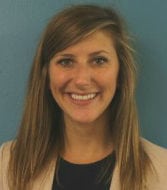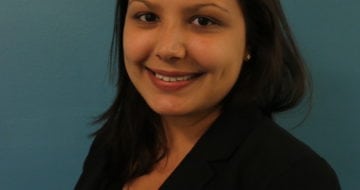As debate continues about what is competency-based education (CBE), one way that AYPF contributes to the conversation is by providing opportunities for policymakers at all levels to see schools and districts in the process of designing and implementing competency-based education.
In November 2014, AYPF partnered with the League of Innovative Schools at Digital Promise on an exploratory study tour to learn more about New Hampshire’s efforts to create college and career ready competencies that lead to high school graduation. The goal of these visits was to more deeply understand the role of schools, districts, and the state in moving towards competency-based learning. Our visits were organized to focus on three key areas of interest:
- Learn about multiple methods of assessments promoted under CBE and it impacts school-level accountability;
- Understand the role of the district office in support schools and teachers in implementation of CBE; and
- Gather strategies to support community engagement and communication.
Our two-day trip was filled with school visits, conversations with colleagues and education leaders in New Hampshire, and lively debates discussing and interpreting what we heard and saw. Of course, we also enjoyed some delicious food! Looking back, I believe there are two key takeaways which crystallize the group’s reactions and contribute to our evolving understanding of CBE.
Implementing competency-based education is a process and will take time.
As new initiatives are introduced into schools and classrooms, very few can demonstrate results overnight. Implementing competency-based education is a multi-step process that involves significant prep work by educators before they start to build an evolved relationship around how students interact with content and teachers. One participant remarked on how our discussion with district leaders provided a deeper understanding the “clear, explicit communication needed for a holistic view of what competencies a student will have by the time they graduate.” Another participant commented that they had “a clearer sense of what competency-based models look like along with difficulties/challenges faced, and that it is also very interesting to see the time it has taken for districts to reach the point they have and the amount of work still in front of them.”
As most of the members of our group were leaders in districts just beginning their journey towards a competency-based system, they left “comforted to know that even the states that have been doing CBE for awhile are still at the beginning of the process.”
Competency-based education is complimentary to many of the current “education reform” efforts.
Personally, I don’t believe CBE is the newest fade in the constant wave of education innovation (hey, the idea has been around for quite awhile!), yet it helps articulate what should be the driving force behind all reform efforts: doing what is best for students. As one participant remarked the trip “confirmed her belief of incorporating CBE into existing reform strategies related to personalization and use of technology, rather than in isolation from them.” Other trip participants began to see how different strategies such as new standards and move towards personalization begin to fit together under CBE; specifically participants mentioned project-based learning and rubrics/standards-based grading. CBE is often regarded as the new “silver bullet” aimed at fixing all the challenges with our current education system, but what we saw in New Hampshire was an understanding that CBE is complimentary to the efforts already in progress.
Questions still remain about how to frame and implement CBE, and it appears that states and districts are taking an evolutionary approach to determine the best ways to do this. While these conundrums will remain, AYPF will continue to create opportunities to further conversations to promote a deeper understanding of the challenges and opportunities of CBE.
Stay tuned for updates from AYPF including a short summary of our visits and conversations we are co-publishing with Digital Promise later this month!
Jennifer Brown Lerner is Deputy Director of the American Youth Policy Forum.






